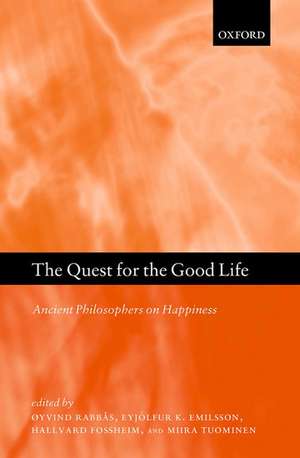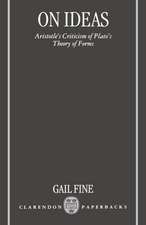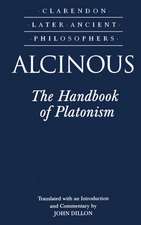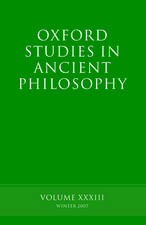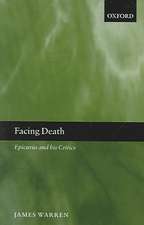The Quest for the Good Life: Ancient Philosophers on Happiness
Editat de Øyvind Rabbås, Eyjólfur K. Emilsson, Hallvard Fossheim, Miira Tuominenen Limba Engleză Hardback – 8 oct 2015
Preț: 594.81 lei
Preț vechi: 809.01 lei
-26% Nou
Puncte Express: 892
Preț estimativ în valută:
113.82€ • 119.08$ • 94.55£
113.82€ • 119.08$ • 94.55£
Carte tipărită la comandă
Livrare economică 22-28 martie
Preluare comenzi: 021 569.72.76
Specificații
ISBN-13: 9780198746980
ISBN-10: 0198746989
Pagini: 318
Dimensiuni: 164 x 242 x 24 mm
Greutate: 0.65 kg
Editura: OUP OXFORD
Colecția OUP Oxford
Locul publicării:Oxford, United Kingdom
ISBN-10: 0198746989
Pagini: 318
Dimensiuni: 164 x 242 x 24 mm
Greutate: 0.65 kg
Editura: OUP OXFORD
Colecția OUP Oxford
Locul publicării:Oxford, United Kingdom
Notă biografică
Øyvind Rabbås teaches philosophy at the University of Oslo. His area of specialization is ancient philosophy, particularly Plato and Aristotle, but he has a general interest in the history of philosophy, especially ethics, as well as in contemporary ethics. His publications include papers on Plato and Aristotle, as well as translations into Norwegian of Plato's Theaetetus and Aristotle's Nicomachean Ethics. He is one of the main editors of the ongoing project of translating Aristotle's complete works into Norwegian.Miira Tuominen is University Lecturer at the University of Jyväskylä (Finland) specialized in ancient philosophy. Having mainly worked on the theory of knowledge and philosophical psychology in antiquity as well as history of philosophy and intellectual history more generally, she has recently also published on suicide and its cultural implications. Her current research project as the Academy of Finland Research Fellow is concerned with ethics in late antiquity and titled 'Self-Interest and Other-Regard in Late Ancient Ethics' and she is working on a monograph on Porphyry's ethics of On Abstinence.Eyjólfur K. Emilsson is professor of philosophy at the University of Oslo. His area of specialization is ancient philosophy, particularly Plotinus and the Platonic-Aristotelian tradition, but he has a general interest in the history of philosophy. His publications include Plotinus on Sense-Perception (CUP, 1988) and Plotinus on Intellect (OUP, 2007), and Plotinus, Ennead VI. 4 & 5 (with Steven Strange, Parmenides Publishing 2014) as well as various articles on ancient philosophy. He has translated several Platonic dialogues: the Gorgias, the Meno and the Symposium and the Republic into Icelandic and the Sophist into Norwegian.Hallvard Fossheim is Associate Professor in Ancient Philosophy at the University of Bergen tand Professor II in ethics and political philosophy at the University of Tromsø. Fossheim's research is focused on Plato and Aristotle, with a main interest in their moral psychology. He has also published in the areas of virtue ethics, new media, and research ethics.
